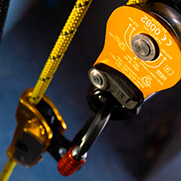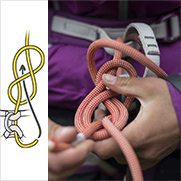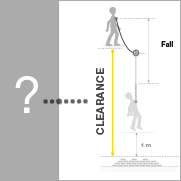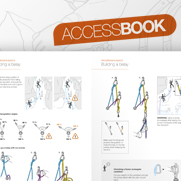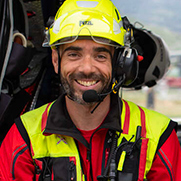Lowering 150 kg - 250 kg with the I’D S and I’D EVAC on the anchor
When the load exceeds 150 kg, descent control becomes very difficult. Braking improvement techniques are recommended.
Warnings
- Carefully read the Instructions for Use used in this technical advice before consulting the advice itself. You must have already read and understood the information in the Instructions for Use to be able to understand this supplementary information.
- Mastering these techniques requires specific training. Work with a professional to confirm your ability to perform these techniques safely and independently before attempting them unsupervised.
- We provide examples of techniques related to your activity. There may be others that we do not describe here.
Reminder of factors affecting the difficulty of a descent:
- Increased load.
- Wear state of the I’D used.
- Diameter and condition of the rope used (new ropes tend to be slippery).
- High rate of descent
- Friction in the system: if the rope path passes through directional points, there is more friction than if the mass is directly suspended.
Techniques to improve braking:
- Using a rope greater than 10.5 mm in diameter.
- Using a Munter hitch with a directional carabiner on the anchor.
- Two-person operation (only on pre-2019 I’D)
In the most critical situations, it is necessary to use all three techniques combined.
For a mass of up to 250 kg hanging freely with no directional point:
For a mass of up to 250 kg with a directional point:
A directional point can increase friction in the system, helping control descent.
Any lowering of a load exceeding 150 kg must begin with the use of all the braking improvement techniques. During the descent, if there is too much friction, (light load, friction on a directional anchor, a swollen or dirty rope that does not slide properly...), the operator may decide to undo the Munter hitch, the rope that always passes from the directional carabiner to the anchor.
Warning: in this case, at the slightest sign of uncontrolled acceleration, stopping the descent and retying the Munter hitch are recommended.



